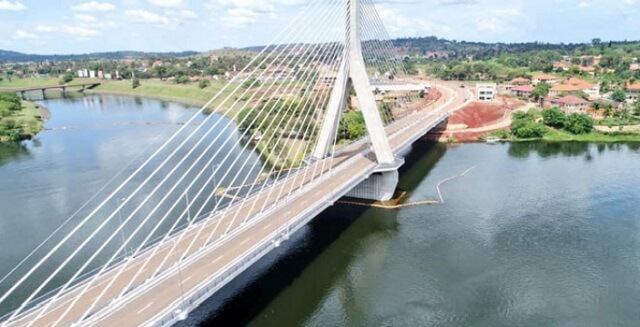
Our Projects are
Transforming African Trade
Quick Contacts
2nd Floor, Fidelity Insurance Centre Waiyaki Way, Westlands

Established in 2018, the African Continental Free Trade Area (AfCFTA) represents perhaps Africa’s biggest opportunity for the next few decades in its battle against poverty of all forms; energy and infrastructure included.
Against the backdrop of the tens of millions of Africans that have been plunged into extreme poverty by the onslaught of the covid-19 Pandemic, a strong case must be made for a speedy implementation of the African Continental Free Trade Area. It is projected that under the AfCFTA, extreme poverty will significantly decline across the continent. West Africa, for instance, would witness the biggest decline in the number of people living in extreme poverty; namely a decline of approximately 12 million people, which is more than a third of the total for all of Africa.
But beyond extreme poverty eradication, it’s about time that the true economic might of Africa is realised through intra-African trade. Compared with Asia and Europe with 59% and 68% intra-continental trade, only 17% of exports from African countries are intra-continental (World Economic Forum), due to age-long tariff and non-tariff barriers, which the AfCFTA is essentially established to eliminate.
The fact that intra-African trade constitutes only about 2% of global trade means there are significant gains to be realised if the AfCFTA is properly implemented. A continent that controls vast resources and a 1.2 billion-strong consumer market should be an economic no-brainer of a success, especially considering its young burgeoning and vibrant population.
The African socio-economic and political construct under the AfCFTA dispensation must be able to provide security for the youth- security of livelihood, security of movement, security of innovation, security of lives and property. AfCFTA must be driven by the raw socioeconomic and might of a young and vibrant population and SMEs, not big government and big multinationals.
Cooperation on Infrastructure
The African Development Bank estimates that that Africa’s infrastructure needs amount to $130–$170 billion a year, with a financing gap in the range $67.6–$107.5 billion. However, the lack of cooperation on infrastructure has been as deleterious to African development as the lack of funds, which is always the first to be touted.
To make the AfCFTA work, there is a need to connect African economies both regionally and on a continental scale through reliable infrastructure, which is conceptualised, financed, and protected in common. Duplication and waste in infrastructural development must be jettisoned for optimal development of a regional or continental infrastructural blueprint.
Cooperation on infrastructure must include security infrastructure. What happens North of Mozambique should not be disconnected from solutions deployed South of Nigeria. We cannot promote trade without protecting production and investment across the continent. Mozambique’s insurgence problem is not just a Mozambican or Southern African issue, it is a threat to the entire continent and there must be concern and commitment to action in Abuja and Accra as there is in Pretoria and Pemba.
Cooperation on Energy
Africa’s energy poverty or its deficiency in any form is bad for business, both for Africa and the rest of the world. More than 600 million people in Africa live without electricity, including more than 80 percent of those residing in rural areas. Only two countries in the region, Mauritius and Seychelles, have near universal electricity coverage. Household electricity access is 75 percent or higher in only six nations in Africa. Almost two-thirds of the countries in the region have household access rates of less than 50 percent
While nations of the world must continue to make real commitment to tackle climate change, African nations, which have been responsible for a significantly lower amount of carbon emissions, must situate their commitments on carbon emissions within the bounds of reason while the global community must make proposals to African nations within the bounds of justice and fairness. It will never be unreasonable or an anathema for African nations to seek to develop their natural resources to power their industries and secure the future of their young and growing populations after being held back from home-grown development for generations. Never again must the relief of the rest of the world be placed disproportionately on the backs of Africans.
The development of Africa’s oil and gas resources does not preclude the development of renewable energy. Africa has untapped renewable sources wherein production costs are falling rapidly; renewable energy also offers transformative potential to relieve Africa from energy poverty. Under the AfCFTA, member countries are obligated to align local laws with broad regional plans. As such, unified energy sector interventions and plans would result in growth of renewable production providing cheaper power to the continent and increased access to electricity enabling spillovers from the use of innovative technology.
Read original article
Disclaimer: The views and opinions expressed in this article are those of the authors and do not necessarily reflect the official policy or position of TradeMark Africa.